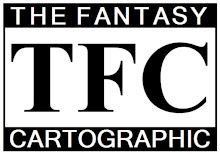The first language that I am going to tackle is High Elvish. First, I want to comment on the fact that it is a ‘High’ Elvish as opposed to some other form of Elvish. This language is going to be created from scratch, including all of the rules of grammar, word construction, etc. One of the assumptions of this project, at least at this stage, is that all rules will be strictly adhered to. As all rules are followed, it will tend to be very formal, very regimented, with little or no use of slang. Thus, the adjective ‘High’. I’m doing this, because it will make the tongue easier to create.
At the same time, I do not believe that this would be the case for a living, constantly evolving language. No language actually used by people (even elves) in everyday life would remain true to its strictest rules. All peoples invent short cuts, shorten words, adopt slang, etc to make the use of their language easier.
Therefore, the language that I am creating will be the written form of Elvish, a formal or perhaps ceremonial form. At a later date, I may go back and revise to simplify, or make changes to the words, etc. In fact, the eventual Elvish dictionary, which is a long term goal of this project, might include both a ‘High’ and ‘Common’ Elvish. To increase its ‘realism’ (A term that I use lightly.) even further, I may develop two or more dialects—all based upon the original High Elvish, but degraded in various ways to account for common usage.
Some other general assumptions that I am making at the beginning of this process:
1. Regarding the world in which this language developed:
- The elves live(d) in the northern hemisphere of the world.
- There is one sun.
- There is one moon.
- The year is approximate to an Earth year and the day approximate to an Earth day, i.e. 365 days in a year and 24 hours in a day. (The calendar may or may not be divided into 12 months and about 52 weeks of 7 days each. Those are yet to be determined.)
2. Regarding elves in general:
- They are ‘typical’ fantasy elves in that they are almost as tall as humans but of slightly lighter build.
- They are long-lived compared to humans. (Although whether this means several centuries or two to three remains to be determined.)
- They are stewards and lovers of and livers in nature. The natural world is where they are most at home and consider it their duty to protect and preserve it.
- They are typically more magical than humans and are ‘masters’ of the arcane arts. (Whether this means that all elves possess magical abilities or not remains to be determined.)
- While there may or may not be (To be determined.) many subraces of elves, this language was developed by the ‘original’ elves and all other dialects grew out of it.
3. Regarding the elvish tongue:
- Many of the words and phrases in the language grew out of or allude to various aspects of the natural world. It is common for elvish words that describe things in nature to also describe things that aren’t specifically in nature. One specific example of this is that adjectives used to describe weather are also used to describe peoples’ moods and emotions, i.e. the elvish word for ‘stormy’ in the phrase ‘stormy weather’ is very similar to the word for ‘angry’ in the phrase ‘angry dwarf’.
- Specific grammar rules will probably be slightly different than English, though not so different as to make it intelligible. As the languages of the world contain many grammar types, I am interested in using some different type.
- Elvish will probably place more emphasis on adjectives than verbs, as the elves are concerned with beauty and how things look, smell, and feel rather than the actions of things. This is due to the fact that they are longer lived, have a mindset more in keeping with the timescales of the natural world than in the ‘human’ world, and place less emphasis on doing deeds than on being and experiencing life.
Those are the ‘entering arguments’ for the creation of High Elvish. More may come up as this process continues; if they do, I will inform you as they appear.
Next week, I will discuss some basic words and relationships-between-words to give some examples of where I see this going. After that, we will get into basic grammar structures, basic word construction, and maybe even start thinking about the types of sounds that will exist in the language.
Subscribe to:
Post Comments (Atom)








No comments:
Post a Comment